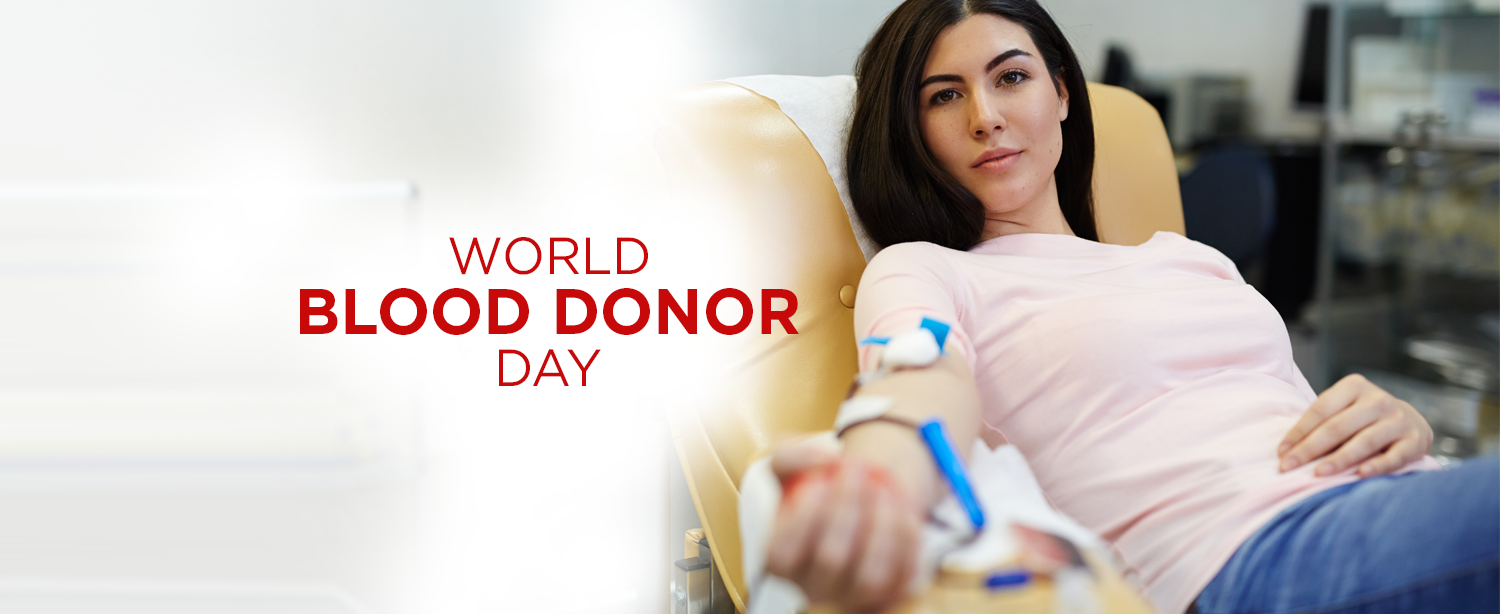Blood donations are a boon to mankind and can save a million of lives. The noble step can also help patients recover from serious injuries, complex operations, and childbirth. Unfortunately, as a result of lack of knowledge, there is a serious shortage
of blood donors. On this World Blood Donor Day, observed on the 14 th June every year, let us all pledge to actively take part in blood donation. Spread the message of this noble act with your family and friends.
Did you know?
Every two seconds someone needs blood in India and each year our nation requires about 5 crore units. Sadly out of this only a meagre 2.5 crore units of blood are available. Myths about blood donation stop potential donors from considering donating. This World Blood Donor day let’s bust these myths so you can make an informed choice about blood donation.
Here are some blood donation myths and facts:
- You can’t donate blood if you’re diabetic.
If you take insulin, you are not eligible to donate. The rationale is that donating could interrupt the glucose control of the body, and potentially lead to a hypoglycaemic reaction in the clinic or on the way home. However, if you manage your diabetes with lifestyle or diabetes pills, you may be eligible, depending on your overall health. Ask your doctor about your eligibility. - You can’t donate blood if you’re a smoker.
Smokers are indeed eligible to donate, but there are a variety of other eligibility guidelines for donation that may decide your eligibility. Its best to consult a doctor. Note – After donating, it is recommended you avoid smoking for at least 3 hours and not consume alcohol for 24 hours. - Donating blood is painful.
Among other important things to know about blood donation , this one is crucial. Giving blood does not hurt. There is a slight prick when they put in the needle, and then you don’t feel much of anything during the donation; maybe an odd feeling in your arm, where the needle is inserted. - Immune system becomes weak when you donate blood.
Research suggests that other than a temporary drop in certain immune cells, like circulating serum proteins and antibodies red blood cells return to normal within a few days and white blood cells in a few weeks. If the body needs more antibodies in the bloodstream, it will produce them extremely quickly therefore there is no danger to the immune system. - Blood donation is a time-consuming process.
All it takes is 45 minutes to one hour to donate. The donation procedure itself takes about 10 to 12 minutes. But it also takes time to fill out the donor registration form, conduct a mini-medical exam, and rest and enjoy refreshments following a donation.
Know the eligibility criteria:
- Any donor, who is healthy, fit and not suffering from any transmittable diseases can donate blood.
- Donor must be 18 -60 years age and should have a minimum weight of 50 kgs.
- Donor’s Haemoglobin level must be 12.5% minimum.
- A donor can again donate blood after 3 months of the last donation.
- Pulse rate must be between 50 to 100mm without any irregularities.
- Blood Pressure Diastolic 50 to 100 mm Hg and Systolic 100 to 180 mm Hg.
- Body temperature should be normal and oral temperature should not exceed 37.5 degree Celsius.
What makes you Non-Eligible:
- Patients of cardiac arrest, hypertension, kidney alignments or epilepsy.
- Women with a miscarriage history should avoid blood donations for the next 6 months.
- Have undergone malaria treatment within the last three months.
- Any immunization taken within the past one month.
- Consumption of alcohol within the last 24 hours.
- HIV + status
- If donor had a major dental procedure the wait for one month.
Some facts about blood dontion:
- One in 4 people need blood tranfusion once in their life.
- One unit of blood donated can save upto 3 lives.
- Trauma victims can need upto 50 red blood cell units
- Liver transplant patients need 20 red blood cell units
- Heart surgery patients need 6 red blood cell units.
- You can’t make blood, but what you can do is donate. It forms 7% your body weight.
- Blood donation is extremely safe and either sterile needles or disposable needles are used for the purpose.
- If you start donating blood at 18, once every three months by the age of 60 years, you would have saved over 500 lives – being a super hero is sure an extraordinary feat, but you can achieve it by donating blood regularly, thus saving their lives.
How blood donation benefits the donor:
- Lowers cancer risk
- Reduces risk of heart attack
- Maintains weight
- Prevents premature aging
- Maintains balanced iron levels
Our team will be glad to assist you with your blood donation. The Blood Bank at Kokilaben Dhirubhai Ambani Hospital is equipped with state-of-the-art equipment, thus enabling use of advanced techniques for processing/screening of blood and its components. All mandatory screening for the transfusion transmissible diseases like HIV1 and HIV2, HBV, HCV are done with the more sensitive and specific CMIA and ELISA method. All units are screened for VDRL and Malarial parasite. Feel free to
visit us for any blood donation queries. Please find below link for further details:


